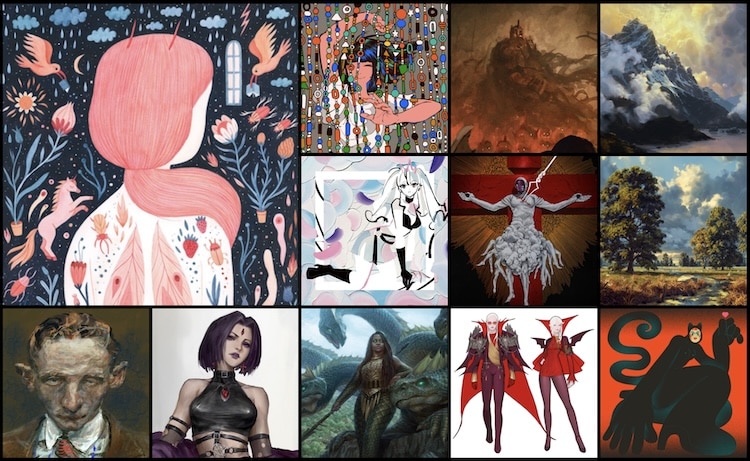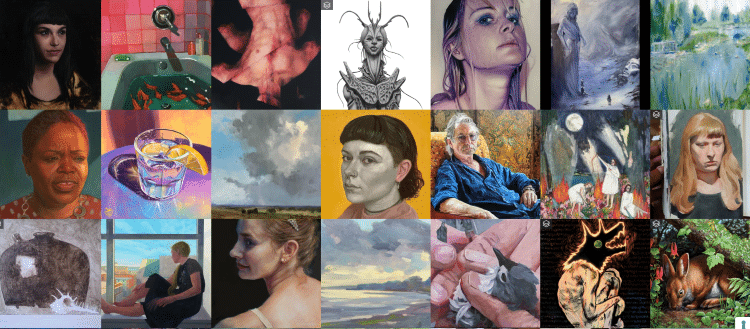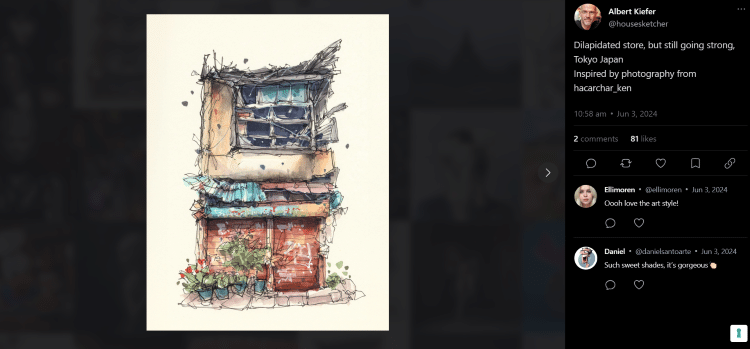
Screenshot from Cara
Social media is a wonderful way for creatives to get their creations out to a wider audience. From DeviantArt and Behance to Instagram and TikTok, there’s a long history of art online. But these days, thanks to algorithm changes and the rise of AI, it can be harder than ever for artists to reach their target audience. That’s where Cara comes in.
The artist-run platform has exploded over the last week, jumping from 40,000 to 650,000 users. As a social media platform for creatives, Cara has both a standard timeline, much like Instagram, as well as a portfolio section where creators can display their best work. They can also signal that they are open to new work opportunities, making it a great place for networking.

Screenshot from Cara
So why is Cara seeing such high sign-up numbers? This is most likely is due to Meta’s announcement that, as of June 26, they’ll be using public Facebook posts, as well as Instagram images and captions, to train AI. Users in the UK and EU were given the option to opt out of this training due to privacy laws, but American users have no such option.
Cara has become a safe haven for these artists and has actually taken a firm stance against AI. AI-generated art is not allowed in portfolios, and Cara has an AI detection system that blocks these images if uploaded. They also add a NoAI tag to any image placed on the platform to signal that AI scrapers shouldn’t take images from the platform for training purposes.
As an added layer of security, the platform also allows artists to incorporate anti-AI pixels like Glaze into their uploads. Another popular pixel, Nightshade, will also be included when made available.

Screenshot from Cara/Albert Kiefer
Cara’s founded Jingna Zhang is the perfect person to take on the challenge of running the creative platform. A renowned photographer herself, she won a case against a painter who used an image she shot for Harper’s Bazaar as the basis for their own art. She’s also one of several artists who are suing Google for using their work to train its AI image generator, Imagen.
“When it comes to art, unfortunately, we just come from a fundamentally different perspective and point of view, because on the tech side, you have this strong history of open source, and people are just thinking like, well, you put it out there, so it’s for people to use,” Zhang tells TechCrunch.
“For artists, it’s a part of ourselves and our identity. I would not want my best friend to make a manipulation of my work without asking me. There’s a nuance to how we see things, but I don’t think people understand that the art we do is not a product.”
With Cara, Zhang hopes to give artists the freedom to continue sharing their art with the public without fear. She’s even open to allowing AI on the platform in the future if legislation that protects artists is passed.
So whether you are an artist yourself or you’re just an art lover, head over to Cara and see what all the fuss is about. And while you’re at it, follow MyModernMet.
Cara: Website | Instagram | X | Discord
Related Articles:
Refik Anadol Announces World’s First AI Model Dedicated to Nature
OpenAI’s Sora Can Turn Short Text Prompts Into Photorealistic Video
This Free Technology Helps Artists Protect Their Work From Being Used To Train AI
AI “Completes” Keith Haring’s Intentionally Unfinished Last Artwork, Sparks Controversy
